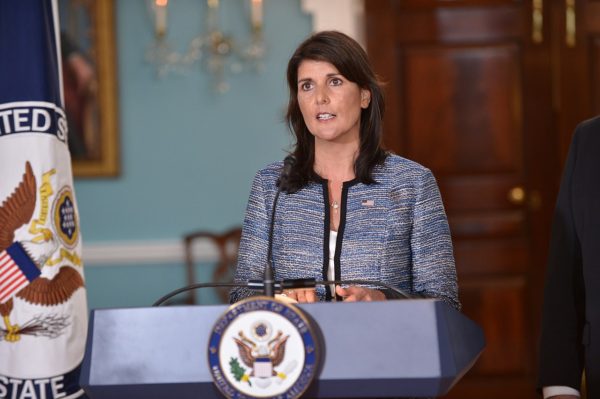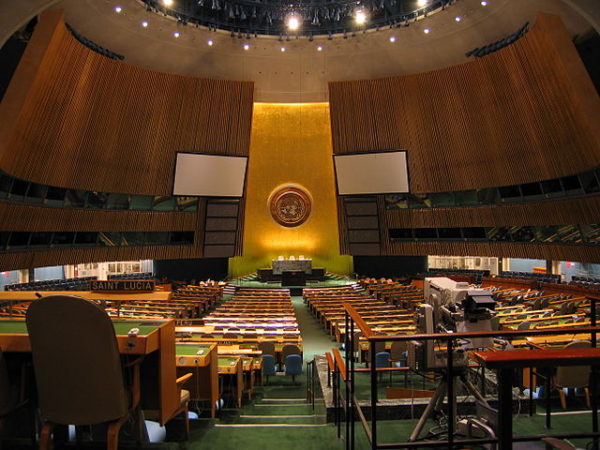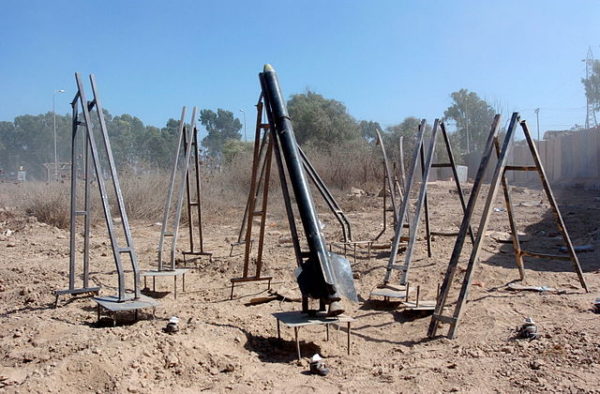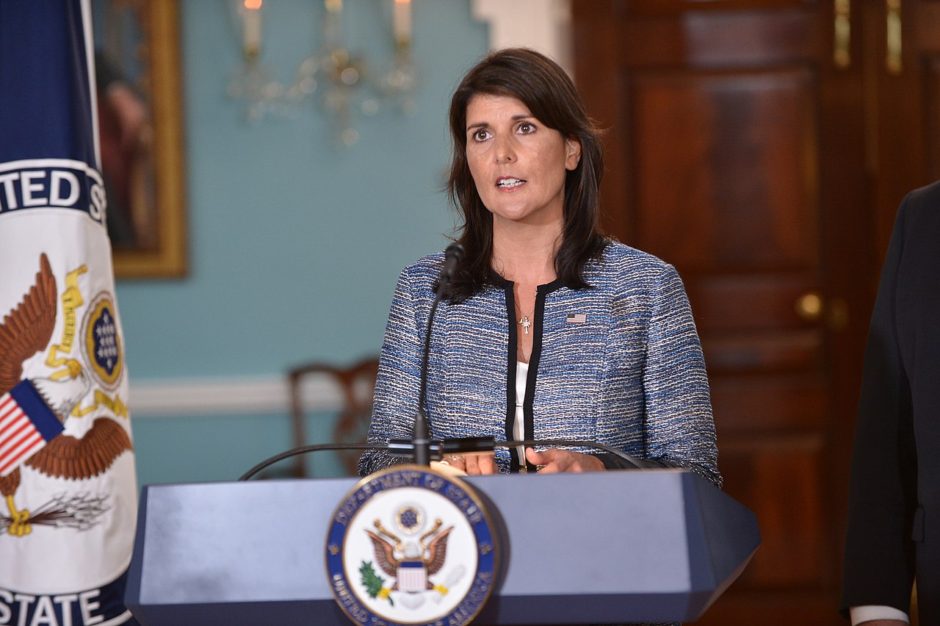As Nikki Haley, the outgoing U.S. ambassador to the United Nations said, December 6 could have been “a historic day” at the UN.

Haley had hoped that a non-binding American resolution condemning Hamas, the first of its kind to be considered by the General Assembly, would pass. “For the sake of peace, and for the sake of this organization, I respectfully urge my colleagues to support this resolution,” she said in what may have been one of her final speeches at the UN.
Although scores of countries in the 193-member body, including the 28 members of the European Union, voted for the resolution, it was throttled by a procedural sleight of hand.
Several Arab states and Bolivia demanded that the resolution, entitled Activities of Hamas and Other Militant Groups in Gaza, should require a two-thirds majority to be passed. Their request was approved by a razor-thin margin of 75-72, with 26 states abstaining.

As a result, the long overdue resolution went down to defeat. Eighty seven nations were in favor of it, but 57 opposed it, 33 abstained and 23 were absent.
Israel’s ambassador to the UN, Danny Danon, was naturally disappointed, but he correctly detected a silver lining in the dark clouds. “Today we achieved a plurality,” he said. “That plurality would have been a majority if the vote had not been hijacked by a political move of procedure.”
If reason and justice had prevailed, the resolution would have sailed through.
The resolution rightly condemned Hamas — which has ruled the Gaza Strip exclusively since 2007 — “for repeatedly firing rockets into Israel and for inciting violence, thereby putting civilians at risk.”
The resolution rightly urged Hamas and organizations like Islamic Jihad to “cease all provocative actions and violent activity” and condemned Hamas for using scarce resources to build a “military infrastructure” when such resources “could be used to address the critical needs of the civilian population.” And the resolution rightly recommended that Gaza be governed by the Palestinian Authority, Hamas’ bitter rival.
Hamas is an Islamic fundamentalist organization whose leaders utterly reject Israel’s legitimacy, as well as a two-state solution. Occasionally, Hamas spokesmen grudgingly imply they’re ready to accept Israel’s existence within the framework of a long-term ceasefire, but their proclamations are disingenuous and insincere.
The Hamas leadership is committed to one overriding objective — Israel’s destruction. Hamas’ ultimate goal is to establish an Islamic state within the borders of Palestine, as its odious national charter declares.
Given its obduracy and radicalism, Hamas is certainly not interested in achieving a just and permanent resolution of the Arab-Israeli dispute.

Since its formation three decades ago, Hamas has carried out hundreds of terrorist acts against Israeli civilians. And for the past 16 years, it has fired thousands of rockets and mortars at Israeli communities adjacent to Gaza. Last month, within a span of only two days, Hamas let loose with a barrage of about 500 rockets against Israel.
Tellingly enough, the only conclusion that Hamas senior official Moussa Abu Marzouk could draw from the rejection of the resolution at the UN was that Hamas had won international recognition “to fire rockets” at Israel.

Since last March, Hamas’ irresponsible leadership has orchestrated weekly protests along Israel’s internationally-recognized border that have turned violent and caused the deaths of almost 200 Palestinians, some of whom have been identified as Hamas foot soldiers.
Israel withdrew unilaterally from Gaza in 2005, giving its inhabitants a chance to develop their economy and convert their impoverished enclave into a prosperous Middle Eastern version of Singapore. Much to its discredit, Hamas has squandered this opportunity and greatly contributed to the humanitarian crisis that afflicts Gaza today.
Since 2008, Hamas’ rejectionist policies have triggered three border wars with Israel, causing widespread property damage and immense human suffering.
Needless to say, Israel’s siege of Gaza is also a contributory factor in Gaza’s unabated misery. But if Israel did not enforce its blockade, Hamas and Islamic Jihad would be completely free to acquire yet more weapons and munitions.
In light of its abysmal track record, Hamas should have been condemned by the UN. As Haley pointed out, “The General Assembly has passed over 700 resolutions concerning Israel. And not a single resolution condemning Hamas. That, more than anything else, is a condemnation of the United Nations itself.”
She is correct, of course.
A shocking number of countries at the UN are so myopic and ill-disposed toward Israel that they have lost the ability to tell the difference between right and wrong.
